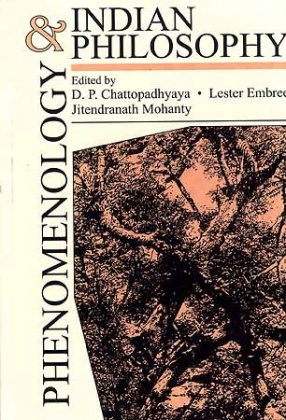
Indian Council of Philosophical Research

38 books

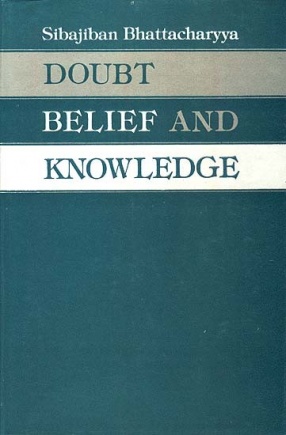
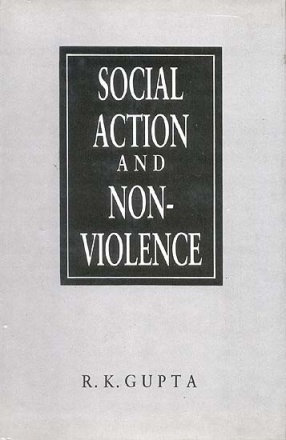
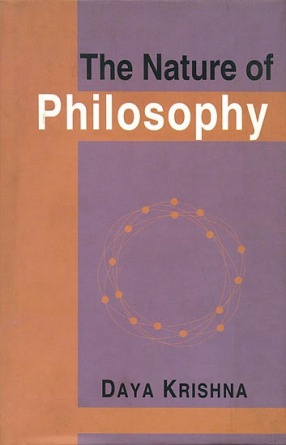
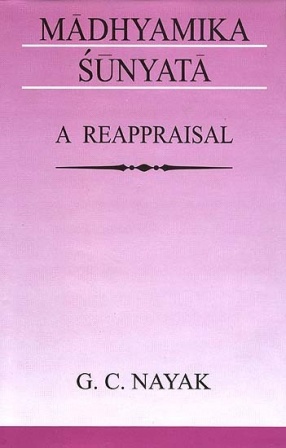
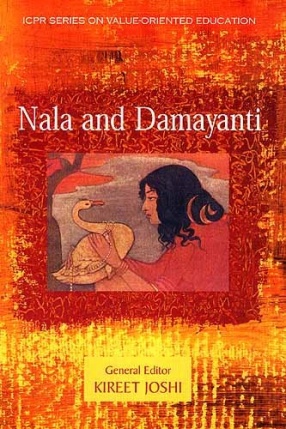
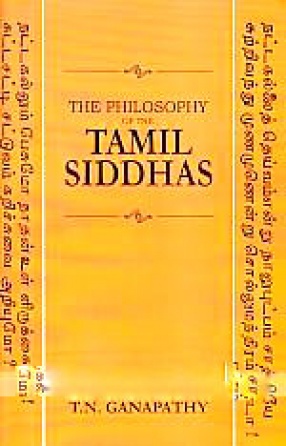
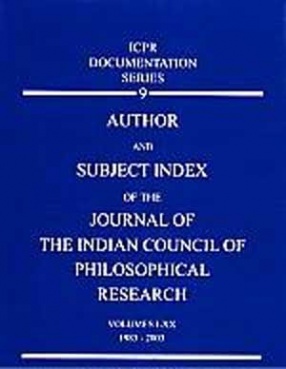

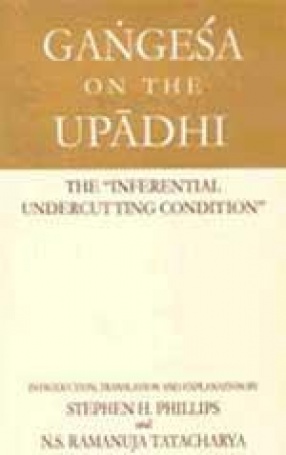
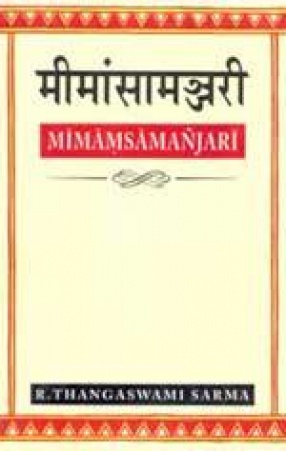
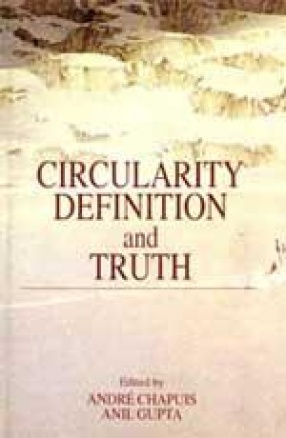

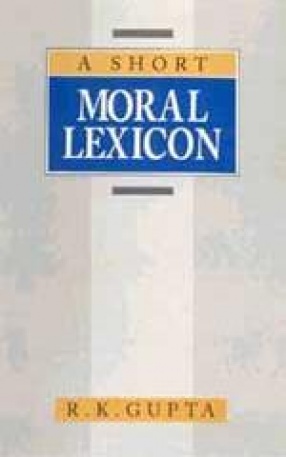

This book shows the close relation between the phenomenology of the West and the phenomenological approach taken by Indian thinkers, both classical and modern. It illustrates that the underlying spirit of phenomenology and hermeneutics has been consciously followed by Indian philosophers for centuries and is not peculiar to Western thinkers. It also shows that Edmund Husserl and K.C. Bhattacharyya were aware of these parallel trends of thought.
Phenomenology and ...

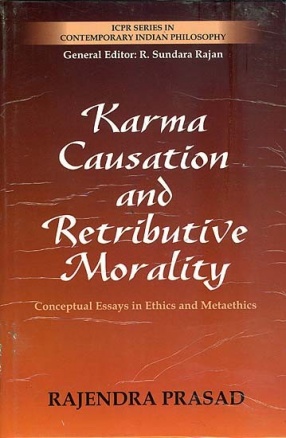
This collection of essays provides a conceptual analysis of various aspects of moral philosophy. After giving his strikingly novel answer to the question 'Does metaethics have any ethical implication?' Professor Prasad gives his theory of moral language and moral logic, identifying the role of rationality in the moral life. His approach is non-cognitivist, yet neither emotivist nor prescriptivist. He presents an incisive critique of G.E. Moore and concludes that ...
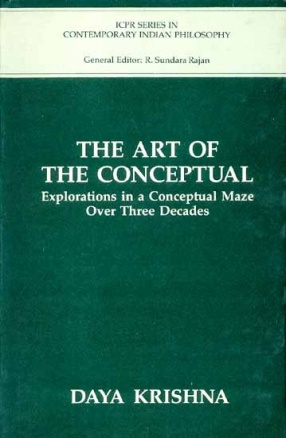
The essays in this volume explore, from various angles, the issues relating to the role of logic in the understanding of reality, the role of belief and imagination in the creation of reality, the multi-dimensional, pluralistic and conflicting nature of values, the centrality of freedom as both the foundation and end of all values, the role of arts in the cognitive enterprise of man, the nature of revolution, culture and society and the epistemological and ...

This book presents a collection of essays. Among other things: (1) it tries to determine the nature of a social action and that of violent and non-violent actions; (2) it examines the claim of satyagraha as a non-violent method of action; (3) it deals with various violent and non-violent actions; and (4) it argues in favour of there being animal rights, and brings to light the view of Gandhi about the place of animals in his scheme of sarvodaya which is in ...

The Nature of Philosophy is a reprint of the very first book published by Daya Krishna. It is based on his doctoral work, completed in 1951 in the Department of Philosophy of Delhi University. The book is a critical examination of the presuppositions of the philosophical enterprise; it considers the admirable clarity and critical acumen diverse styles and genres of philosophical reflection: analysis, phenomenology, existentialism, and other historical modes of ...
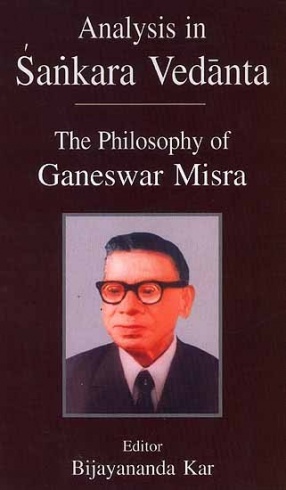
Some time past, the Indian Council of Philosophical Research made a decision to bring out a volume on the philosophy of Ganeswar Misra. Subsequently, a further decision was made by the Council to have a National Seminar on Misra and accordingly a Seminar was held at the Academic Centre of the Council at Butler Palace, Lucknow in 2001 and I was appointed as its Director. Some distinguished philosophical thinkers of the country participated and presented their ...

This volume is a reappraisal of the Madhyamika thought with special reference to Nagarjuna and Chandrakirti. Madhyamika philosophy, specially the Madhyamika Sunyata, has been subjected to much misunderstanding and misinterpretation through the ages. Sunyata traditional has been mistaken either as void in a literal sense or even as the transcendent absolute in certain quarters because of the Tattva here being regarded as Catuskotivinirmukta. What this volume ...

Illumination, heroism and harmony are three major powers that can uplift to higher and higher levels. It may be useful to explore and illustrate the meanings of these three terms by giving examples of those qualities through appropriate stories. This monograph, entitled Nala and Damayanti, could as well have been called "the Art of Victory". This ancient story by wisdom enabled two human beings, crushed by adverse circumstances, to emerge victorious ...

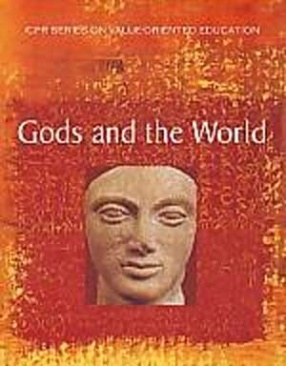

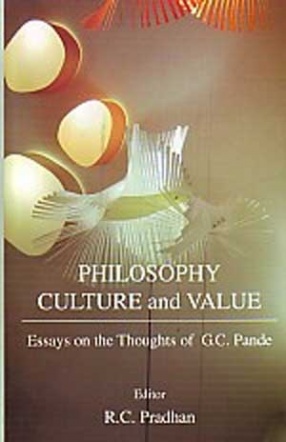
Govind Chandra Pande, b. 1923, Indian philosopher and historian; contributed articles.
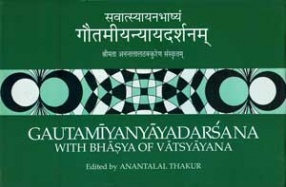
This volume attempts to provide a better recension of the Nyayadarsana of Aksapada with the Bhasya of Vatsyayana based on important materials, manuscripts, printed texts, commentaries and other relevant sources. The relation of the Nyayadarsana with the Vaisesikadarsana of Kanada, Yogadarsana of Patanjali, Arthasastra of Kautilya and the Yogacara-Vijnanavada branch of Buddhist philosophy has been delineated. The three phases of the orthodox Indian logic have been ...

The book explores the philosophical dimensions of Bhakti tradition in India in all their variety and depth, and raises the question such as whether the world of feelings which is intrinsically subjective and personal in character can ever be an ‘object’ of rational enquiry. It asks "Is Bhakti possible without belief in personal God or any God whatsoever?" and, tries to articulate the ‘ideals’ immanent in the life of feelings without reference to ...

This book presents a systematic view of the landmark developments in analytic philosophy in the twentieth century. It highlights the development of the concepts such as language, meaning truth, reference, necessity, analyticity, etc. which have been central to analytic philosophy. The author has attempted to bring out the issues of analytic philosophy in a systematic and coherent fashion. Analytic philosophy, inspite of the appearance to the contrary, is a ...
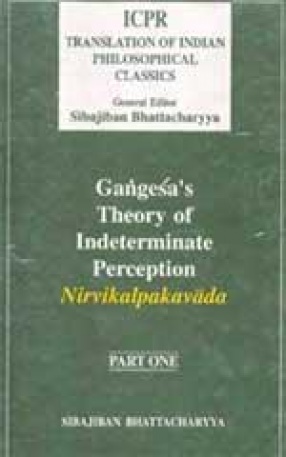
In this Part One an attempt has been made to esplain Navya-Nyaya concepts and theories which will help in under standing Gangesa’s text translated in Part One

This book presents a readable translation and philosophic commentary on a crucial and difficult text of Navya Nyaya and classical Indian logic. The inferential undercutter's significance is explained within the context of Nyaya's theory of knowledge, which had wide influence in the late classical culture, from philosophy to jurisprudence and aesthetics. Gangesa, the commonly recognized founder of "New Logic," is shown here to be an epistemologist and ...

The present work written in lucid Sanskrit deals with various concepts pertaining to Mimamsa philosophy, besides general and technical issues on epistemology. The significance of each pramana has been discussed according to various other systems with suitable examples. The categories (padarthas) accepted in the Mimamsa system have also been described with their variations compared to other systems of philosophy. The basic tenets of Mimamsa and the doctrine, etc. ...
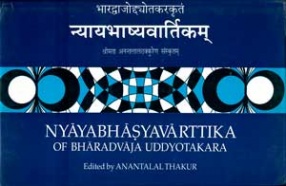
Between Vatsyayana and Vacaspati, the Nyayabhasyavarttika reigns supreme as the only work by Udyotkara. It explains, true to the definition of varttika, nearly every word of the Nyayabhasya, adds fresh elements and sometimes criticizes the earlier position. In this work, it is claimed, the original views of Aksapada, the father of Nyaya, have been rescued from the onslaught of 'bad logicians' with Nagarjuna, Vasubandhu and Dignaga. Concerning doubt, ...
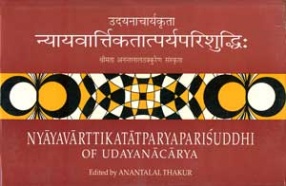
The eleventh-century classic, Nyayavarttikatatparyaparisuddhi, forms the fourth tier of that quartet of commentaries, Nyayacaturgranthika, which has been regarded for more than nine hundred years as the central corpus of ancient Nyaya. Apart from analyzing nearly every line of Vacaspati's Tatparyatika, this vast yet tersely written gloss adds fresh philosophical insights engaging in debates with Buddhist stalwarts like Jnanasrimitra and with ...

This volume consists of eighteen new essays, written by distinguished scholars, on topics that are of great interest to logicians and philosophers: definitions and the concept of truth. The essays fall into three groups. The first group defends the logical legitimacy and fruitfulness of circular definitions. It argues that circular definitions yield better theories not only of truth but also of defeasible inference, rationality, knowledge, and vagueness. The ...

This collection includes twenty-five essays written by G.R. Malkani during 1923-66 on various topics in hard core philosophy. The reader will judge whether these essays express one single and coherent outlook towards different philosophical problems and whether that single outlook can be identified as Advaitic. In the larger context of the encounter between the Indian traditions of thought and those of the West, this collection provides a basis to judge whether ...

The present lexicon is not like one of the usual kind. A lexicon is usually historical in nature. This lexicon is only partly so. It does two other things. Firstly, it takes up a number of moral terms from day-to-day life, and defines them by visualizing a variety of situations in which they may be used, and seeing in what sense or senses they are used there. Secondly, it takes up a number of moral terms which may be used to designate a whole lot of situations ...
